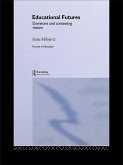In light of the dramatic growth and rapid institutionalization of human-animal studies in recent years, it is somewhat surprising that only a small number of publications have proposed practical and theoretical approaches to teaching in this inter- and transdisciplinary field. Featuring eleven original pedagogical interventions from the social sciences and the humanities as well as an epilogue from ecofeminist critic Greta Gaard, the present volume addresses this gap and responds to the demand by both educators and students for pedagogies appropriate for dealing with environmental crises. The theoretical and practical contributions collected here describe new ways of teaching human-animal studies in different educational settings and institutional contexts, suggesting how learners - equipped with key concepts such as agency or relationality - can develop empathy and ethical regard for the more-than-human world and especially nonhuman animals. As the contributors to this volume show, these cognitive and affective goals can be achieved in many curricula in secondary and tertiary education. By providing learners with the tools to challenge human exceptionalism in its various guises and related patterns of domination and exploitation in and outside the classroom, these interventions also contribute to a much-needed transformation not only of today's educational systems but of society as a whole. This volume is an invitation to beginners and experienced instructors alike, an invitation to (re)consider how we teach human-animal studies and how we could and should prepare learners for an uncertain future in, ideally, a more egalitarian and just multispecies world. With contributions by Roman Bartosch, Liza B. Bauer, Alexandra Böhm, Micha Gerrit Philipp Edlich, Greta Gaard, Björn Hayer, Andreas Hübner, Michaela Keck, Maria Moss, Jobst Paul, Mieke Roscher, Pamela Steen, and Nils Steffensen.
Dieser Download kann aus rechtlichen Gründen nur mit Rechnungsadresse in A, B, BG, CY, CZ, D, DK, EW, E, FIN, F, GR, H, IRL, I, LT, L, LR, M, NL, PL, P, R, S, SLO, SK ausgeliefert werden.









